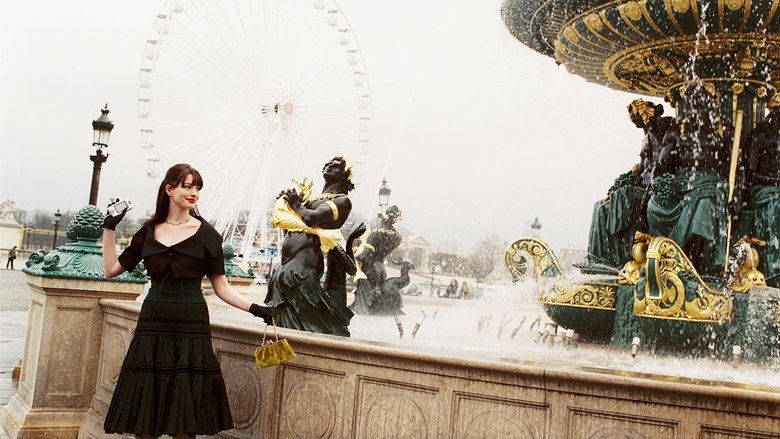Understanding narcissistic characters through film
Explore the complex world of cinematic characters exhibiting narcissistic traits and behaviors. Films offer a unique lens through which to observe and understand the intricate psychology often associated with narcissism.



Cinema has long been fascinated by characters who possess an inflated sense of self-importance, a deep need for excessive attention and admiration, troubled relationships, and a notable lack of empathy. These traits, often associated with narcissism, provide fertile ground for compelling drama and character studies.
Writing and portraying narcissistic characters is a delicate art. It's not just about depicting someone arrogant; it's about exploring the underlying insecurity, the carefully constructed facade, and the manipulative tactics employed to maintain their self-image. Actors often delve deep to show the grandiosity that masks fragility, the entitlement that drives their actions, and the chilling lack of empathy that defines their interactions.
Films in this niche often highlight the impact these individuals have on those around them, showcasing the psychological toll and the destructive nature of their relationships. They can range from intense psychological thrillers to dark comedies, illustrating that narcissistic traits can manifest in various environments, from the cutthroat corporate world to the demanding realm of the arts or even within intimate personal relationships. Understanding the language of narcissism on screen helps us recognize these patterns and the complex motivations behind them, making these films not only entertaining but also psychologically insightful.
14. The Machinist (2004)
"The Machinist" is a psychological thriller starring Christian Bale as Trevor Reznik, a man suffering from extreme insomnia and paranoia that leads to a drastic physical transformation and a distorted perception of reality. While this film isn't primarily about decoding narcissistic language, it portrays a mind grappling with guilt and self-deception.
Trevor's internal state influences his interactions and his interpretation of events, leading to miscommunication and a disconnection from those around him. His struggle is more rooted in psychological breakdown stemming from trauma rather than inherent narcissistic traits. However, it does touch upon how a fractured psyche can impact communication and perception, creating a reality shaped by internal turmoil.

13. Nocturnal Animals (2016)
"Nocturnal Animals" weaves together a story within a story, exploring themes of revenge, regret, and the impact of past relationships. The film, directed by Tom Ford, presents a protagonist who receives a manuscript from her ex-husband, the contents of which seem to be a veiled, brutal message directed at her.
While not a direct study of narcissistic language in interaction, the narrative within the novel serves as a form of communication – a delayed, symbolic act of retribution conveyed through storytelling. The language used in the manuscript is raw and violent, contrasting with the polished, artificial world of the protagonist. It's a film where the 'language' of a fictional narrative becomes a powerful tool for psychological impact and settling old scores.

12. Fight Club (1999)
"Fight Club," directed by David Fincher, is a film that delves into themes of identity, consumerism, and rebellion through the dynamic between the unnamed Narrator and the charismatic Tyler Durden. While not solely focused on clinical narcissism, the film explores the construction and dissolution of identity and the power of rhetoric.
Tyler Durden's language is persuasive, rebellious, and anti-establishment, drawing the Narrator and others into his philosophy. The film uses dialogue and narration to dissect societal norms and the search for meaning outside conventional life. It's a thought-provoking look at how language can be used to challenge established systems and influence individuals, exploring aspects of ego, control, and self-destruction.

11. The Great Gatsby (2013)
"The Great Gatsby" tells the tragic story of Jay Gatsby, a man who constructs an elaborate persona and lifestyle built on wealth and status to win back a lost love. Leonardo DiCaprio portrays Gatsby as someone whose language and presentation are carefully curated.
Gatsby uses language that reflects his acquired wealth and attempts to fit into the upper echelon of society. His words are part of the illusion he maintains, designed to impress and convey a sense of effortless success. The film shows how language, combined with material display, can be used to create a desired image and pursue an idealized past, highlighting the performative aspect of identity and social aspiration.

10. The Devil Wears Prada (2006)
"The Devil Wears Prada" offers a look into the demanding world of high fashion under the command of Miranda Priestly, a powerful editor-in-chief. Meryl Streep's portrayal of Miranda is iconic, showcasing how she wields power through terse, cutting, and often dismissive language.
Miranda rarely raises her voice, yet her words carry immense weight, creating an atmosphere of fear and constant striving among her employees. Her communication style is efficient, focused solely on results and maintaining control. The film illustrates how minimal, carefully chosen language can be incredibly effective in asserting dominance and shaping the behavior of those around you in a professional hierarchy.

9. Black Swan (2010)
"Black Swan" is a psychological thriller that plunges into the intense world of ballet, exploring the pressures of perfectionism and the disintegration of a dancer's psyche. Natalie Portman delivers a powerful performance as Nina, a dancer striving for the lead role in 'Swan Lake'.
The film doesn't feature overtly manipulative language in the same vein as others on this list, but it showcases how external language and expectations (from her demanding mother, the director, and competitors) combine with Nina's internal voice to fuel her obsessive pursuit of an ideal, often at the cost of her own well-being. It's a look at how the language of ambition and criticism can contribute to a fragile sense of self and push someone towards extreme measures.

8. The Social Network (2010)
David Fincher's "The Social Network" chronicles the tumultuous founding of Facebook, offering a portrait of Mark Zuckerberg that touches upon themes of ambition, social dynamics, and communication styles. Jesse Eisenberg portrays Zuckerberg with a blunt, often dismissive, and hyper-focused intensity.
The film highlights how Zuckerberg's direct, sometimes abrasive, language prioritizes efficiency and his vision, often at the expense of interpersonal sensitivity. Conversations are transactional, focused on ideas and execution rather than emotional connection. While not a clinical study, the film presents a character whose unique way of communicating and navigating relationships can be interpreted through the lens of prioritizing personal goals and intellectual pursuits over traditional social graces.

7. Birdman or (The Unexpected Virtue of Ignorance) (2014)
"Birdman or (The Unexpected Virtue of Ignorance)" delves into the psyche of Riggan Thomson, an actor desperate to regain relevance and artistic credibility. Michael Keaton gives a raw performance as Riggan, haunted by his past success as a superhero and battling an internal voice that embodies his ego and insecurities.
The film uses Riggan's internal monologue and his interactions with others to explore his desperate need for external validation. His language swings between grand pronouncements about art and pathetic pleas for recognition. It’s a chaotic, stream-of-consciousness look at how an individual's internal struggles with self-importance and fear of failure manifest in their communication and perception of the world around them.

6. Whiplash (2014)
"Whiplash" is an intense character study that, while perhaps not solely focused on narcissism, deeply explores the impact of psychologically abusive language. J.K. Simmons' Oscar-winning performance as Terence Fletcher is terrifyingly captivating. Fletcher is a jazz instructor who uses humiliation, insults, and psychological games to push his students beyond their limits.
The film dissects how his carefully chosen, cutting words are designed to break down individuals, ostensibly to forge greatness. It's a powerful depiction of a dynamic where language isn't about communication or encouragement, but about control, fear, and creating an environment of intense pressure through verbal assault. It leaves you contemplating the line between demanding excellence and inflicting damage.

5. The Talented Mr. Ripley (1999)
"The Talented Mr. Ripley" is a suspenseful exploration of identity and deception, centered around Tom Ripley, a character who is a chameleon with language. Matt Damon's portrayal shows Ripley's ability to observe, adapt, and use language to insinuate himself into the lives of others.
Ripley doesn't just mimic appearances; he adopts speech patterns, mannerisms, and backstories, using words to build convincing facades. The film highlights how language can be used to create false intimacy, manipulate trust, and navigate complex social situations through calculated lies and carefully constructed conversations. It's a subtle yet chilling depiction of using language as a tool for infiltration and self-preservation.

4. The Wolf of Wall Street (2013)
Martin Scorsese's "The Wolf of Wall Street" plunges you into the world of Jordan Belfort, a man whose charisma and persuasive language are his most potent weapons. Leonardo DiCaprio delivers an electrifying performance as Belfort, a stockbroker who builds an empire on manipulation and grandiosity.
The film showcases how Belfort uses powerful, often crude, language to motivate, deceive, and control those around him. His speeches are legendary within the film, designed to ignite greed and loyalty in his sales force. This movie is a raw, unfiltered look at how language can be used not just to sell products, but to sell a persona, a lifestyle, and a complete disregard for consequences, fueled by an insatiable need for wealth and admiration.

3. Nightcrawler (2014)
"Nightcrawler" introduces us to Lou Bloom, a character whose unsettlingly formal and almost robotic language is key to his disturbing rise. Jake Gyllenhaal's portrayal is mesmerizing, showing a man who learns and applies communication techniques purely for self-advancement, devoid of empathy or ethical considerations.
Lou studies self-help rhetoric and business jargon, weaponizing these phrases in interactions to manipulate, negotiate, and assert dominance. His conversations are often one-sided, focused solely on achieving his goals, regardless of the human cost. The film is a stark portrayal of how language can be stripped of its human element and used as a cold, calculating tool in the pursuit of success, making Lou a truly unsettling figure.

2. American Psycho (2000)
Step into the mind of Patrick Bateman in "American Psycho," a film that uses internal monologue and superficial interactions to expose a chilling disconnect from reality. Bateman's narration is a constant stream of consciousness focused on status symbols, brand names, and meticulous routines, starkly contrasting with his horrific actions.
Director Mary Harron and star Christian Bale expertly portray how Bateman uses this shallow language to navigate his world, often missing social cues or misinterpreting emotions entirely. The dialogue he has with others is frequently empty, filled with cliches or boasts, highlighting his inability to form genuine connections. It's a fascinating, satirical, and disturbing look at a character whose communication is purely transactional and performative, revealing the void beneath the polished exterior.

1. Gone Girl (2014)
David Fincher's "Gone Girl" is a masterclass in psychological manipulation, making it essential viewing for understanding how language can be a tool of control and deception. At its heart is Amy Dunne, a character who crafts narratives with chilling precision.
Her famous 'Cool Girl' monologue, for instance, isn't just a rant; it's a dissection of performative identity, revealing the calculated effort behind presenting a specific facade. The film brilliantly contrasts the public perception of a relationship with the hidden, often disturbing, reality. It shows how language, both spoken and written (through diaries and notes), can be weaponized to twist perception and control outcomes. Watching Amy operate provides a fascinating, albeit unsettling, look at constructing and deconstructing reality through carefully chosen words and actions.

